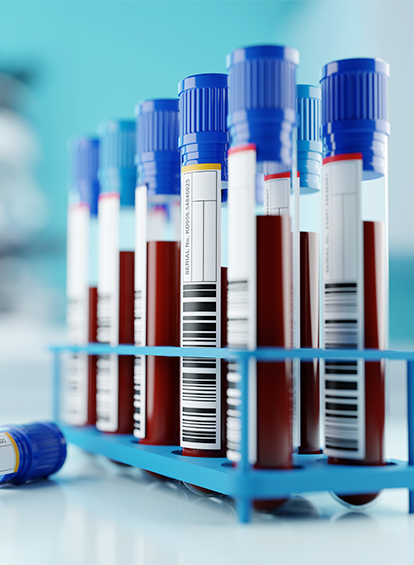Adult Psychiatry
Disordered Eating
Disordered eating refers to a spectrum of irregular eating behaviours that may not meet the criteria for a formal eating disorder but can still have a serious impact on both physical and mental health. These behaviours often reflect a strained or unhealthy relationship with food, weight, and body image, and can affect people of any age or background.

What is it?
Disordered eating includes a wide range of patterns and attitudes towards food that may become habitual or emotionally charged. Unlike clinical eating disorders, such as anorexia or bulimia, disordered eating does not always involve extreme behaviours or noticeable physical changes. However, it can lead to significant distress, low self-esteem, and social withdrawal, particularly when food begins to dominate daily life.
These behaviours may stem from a desire for control, attempts to cope with emotional discomfort, or as a response to societal pressures about weight and appearance. While not always visible to others, the effects can be profound—impacting health, concentration, mood, and relationships with others and oneself.
Book an appointment
Additional Information

Examples of Disordered Eating Behaviours
Examples include chronic dieting and persistent fluctuations in weight, regularly skipping meals, or engaging in restrictive eating patterns. Some individuals may use food to regulate emotions, turning to comfort eating when anxious, stressed, or upset. Others may become overly focused on "clean eating", limiting their diet to such an extent that it impacts nutrition and wellbeing. There may also be a pattern of rewarding or punishing oneself with food, or an intense focus on calorie counting and macronutrient tracking beyond healthy moderation.
Overlap with Eating Disorders and Potential Risks
There is a recognised overlap between disordered eating and clinical eating disorders, as both may originate from shared risk factors such as low self-worth, perfectionism, trauma, or societal ideals of body image. Without timely support, disordered eating behaviours can intensify and evolve into diagnosable conditions such as anorexia nervosa, bulimia nervosa, or binge eating disorder. Even when these behaviours remain subclinical, they can still result in nutritional deficiencies, fatigue, digestive issues, and emotional distress.
When to Seek Help
Support should be sought if you notice significant changes in eating habits, extreme preoccupation with food or weight, avoidance of meals, or physical symptoms such as dizziness, fatigue, or gastrointestinal discomfort. Equally, frequent unhealthy patterns—like skipping meals, emotional eating, or obsessive food tracking—warrant attention. Early intervention by qualified professionals such as GPs, psychologists, and dietitians can prevent further harm and guide individuals toward recovery.
Treatment Approaches
Treatment for disordered eating usually involves a multidisciplinary team to address both the physical and emotional aspects of the condition. Medical professionals may monitor physical health markers to identify and manage any complications. Dietitians or nutritionists can provide practical support to help restore a healthy relationship with food and eating patterns. Psychological therapy—particularly approaches such as Cognitive Behavioural Therapy (CBT)—can uncover the underlying drivers of disordered eating and support the development of healthier coping strategies. Timely intervention improves outcomes and helps to prevent the escalation of symptoms.
How We Can Help
At The Clinica, Dr. Arora offers specialist diagnostic assessments and treatment pathways for adults experiencing disordered eating. Following a comprehensive evaluation, you will receive a personalised care plan that may include therapeutic support, nutritional guidance, and ongoing monitoring. Our outpatient setting is best suited for individuals who are medically stable and do not require inpatient care.
In addition to one-to-one consultations, Dr. Arora provides support and training for families, schools, and organisations seeking to better understand the complexities of disordered eating. To arrange an appointment or learn more about how we can support you, please contact our Booking Team on 01344 946363 or email info@theclinica.co.uk.
Frequently Asked Questions
Disordered eating refers to irregular or unhealthy eating habits that may not meet the diagnostic criteria for a clinical eating disorder but still impact physical and emotional wellbeing.
Yes. Disordered eating can affect anyone, regardless of weight. Nutrient deficiencies, fatigue, digestive problems, and mental health challenges can occur at any body size.
While occasionally skipping a meal may not be harmful, doing so frequently can disrupt your body’s natural hunger cues and contribute to unhealthy eating patterns over time.
Support may include psychological therapy, nutritional counselling, and monitoring of physical health. Early intervention can prevent symptoms from worsening and support long-term recovery.
Yes. If left unaddressed, disordered eating may progress to a clinical eating disorder. Recognising the signs early and seeking help is essential to avoid further complications.
Specialised Clinics
General Enquiries
Please send your enquiry to us and our Practice Manager will be in touch shortly. Alternatively, if you would rather speak to us or your enquiry requires our urgent attention, please call us on 01344 946363.







